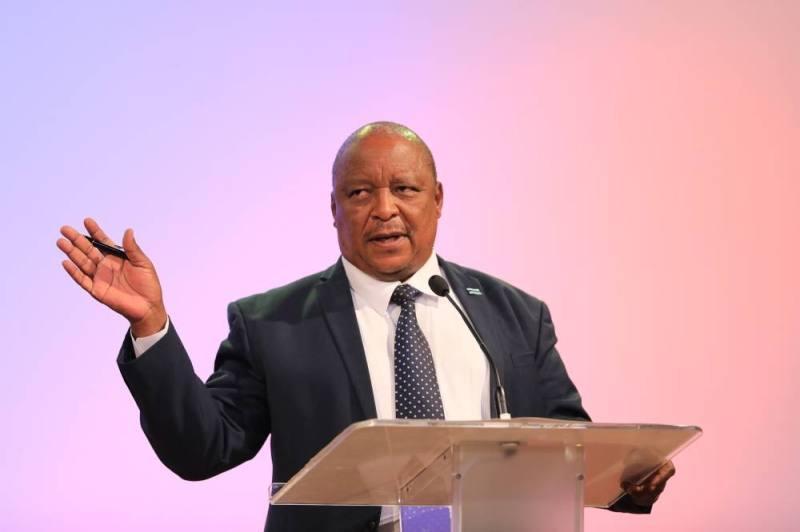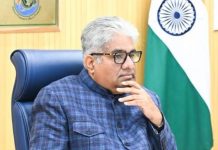Africa-Press – Botswana. The Trans- Kalahari Rail (TKR) project remains critical to Botswana as a landlocked country that requires trade routes that ensure speedy movement of exports and imports to avoid lengthy storage periods at ports of entry.
Minister of Transport and Public Works, Mr Eric Molale said this at the Joint Ministerial Committee (JMC) on the TKR project meeting in Kasane recently.
The JMC culminated in Botswana and Namibia approving the independent feasibility study of railway line to be carried out through a consultant, who had been tasked to develop comprehensive terms of reference for the request for proposals and undertake a feasibility study in collaboration with railway operators from Botswana and Namibia.
Mr Molale said he was delighted to see the TKR project making progress that would lead to its execution having been on the drawing board for a long time.
“I am optimistic of the work done by the experts from Botswana and Namibia here in Kasane over the past week so that we realise our goal to build the railway line,” he said.
He indicated that despite the differences emanating from the technocrats and political point of view, parties were able to reach common ground for the realisation of the project.
Mr Molale stated that pre-contract stages were imperative because they expounded and set the tone for the project so that obstacles would be dealt with at early stages.
Moreover, he said the project would provide improved distribution of regional traffic among corridors in Southern Africa, increased regional integration and international cooperation.
He indicated that the railway line would result in a substantial increase in the value of exports, considerable contribution to the Gross Domestic Product (GDP), job creation, economic diversification accompanied by economic growth and development in each participating country.
“Once completed the TKR will complement the North South Corridor (NSC) as it will link with the existing line that currently runs from the North through Zimbabwe to Botswana and South Africa,” he added.
For his part, Namibia’s Minister of Works and Transport, Mr John Mutorwa said he was happy that the TKR project was gaining momentum, having moved slowly since signing a Memorandum of Understanding for its implementation in 2010.
Mr Mutorwa said the railway line intended to expand trade and promote tourism and facilitated movement of coal and other commodities and people across borders. He said railways, roads, airports and seaports infrastructure fulfilled the role of seamless movement of people, goods and services. He added that the two governments at the level of the heads of state and cabinet had resolved that the railway line project must reach completion with all key players executing tasks assigned to them.
Meanwhile, the two ministers commended the JMC team, comprising TKR-PMO, Joint Technical Committee, rail authorities and senior government officials for their commitment and working tirelessly to ensure the railway line came to fruition.
For More News And Analysis About Botswana Follow Africa-Press






